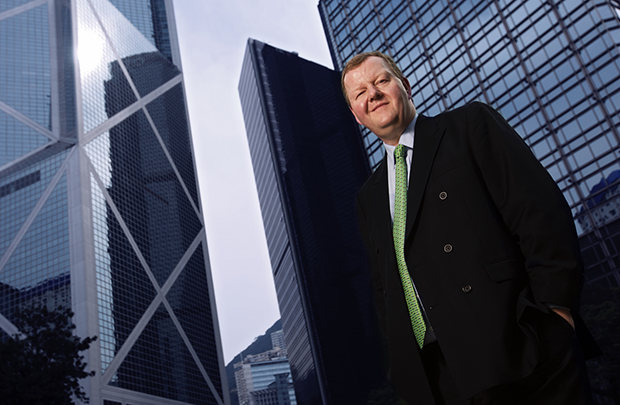6 business trends to watch, and how Filipinos can cope or capitalize

Image: INQUIRER.net stock photo
In this fast-paced digital age, the business market has only gotten more competitive. However, financial adviser Peter Lundgreen believes Filipinos has what it takes to thrive in this market.
His own financial advisory company, Lundgreen’s Capital, expanded to Manila last 2015. The company’s headquarters is in Denmark and it has established a presence in Hamburg and Hong Kong.

CEO and professional financial adviser Peter Lundgreen. Image: Lundgreen’s Capital
INQUIRER.net had the exclusive chance to hear his financial advice on the latest business trends locally and around the world, and what we can do to improve our local business market.
Take further advantage of our English-speaking abilities.
As someone who has Filipinos on his staff, he knows firsthand that the Philippines has an “enormous pool of talent.” He believes this skill can and should expand beyond the BPO industry. For instance, his staff help with high-skill communication needs such as global content marketing and social media marketing.
This gives Filipinos an edge in the global freelance market. Lundgreen himself admits that Filipinos speak English better than a number of other countries. Services such as web design and translation are some jobs that international companies need and pay well for. “You just need an internet connection,” says Lundgreen.
Certain industries provide employment opportunities for different skill levels.
Lundgreen cites that car wash services, fitness centers and home cleaning services are currently business trends in Metro Manila which opens the market to people with various skills and education levels. With freelancing and these types of businesses, there are “a lot of opportunities for self-employment.”
Boost local tourism and tap into financial technology.
Filipinos should keep investing in tourism as it has several “spin-off effects” such as local employment and generating revenue for the government. Even small businesses can thrive as well, like small food stands or restaurants.
He said another trend that has been successful in developing countries like Kenya or growing economies like China is financial technology. For example, WePay is an American service which has a large user base in China since it allowed online payment through the platform WeChat.
In Kenya, bank account holders do not need smartphones to do mobile transactions. With an ordinary mobile phone, they are able to access their bank accounts, which opens opportunities for those in low-income brackets to have a savings account.
In business, scalability beats disruption.
Lundgreen cited how businesses such as Airbnb and Uber, viewed as “disruptive” of industries (the hotel industry and transportation industry, respectively), are usually what people think their next business should be. But the financial expert thinks otherwise.
“Scalability always beats disruption,” he said. If you want to start a business, do something you’re interested in, and ensure that it has the potential for growth and expansion.
“Copy-paste” the Hong Kong government’s way of doing business.
In terms of ease of doing business, Lundgreen found that the best model was that of Hong Kong’s government. His message to Filipinos is to convince our government officials to go to Hong Kong and “copy-paste” their seamless process.
It is “not capital intensive, requires a minimum of yearly reporting, a tax statement, and a simple yearly balance sheet,” he shared. He compared this to opening a business here where there was a “truckload of paperwork” and bureaucracy that slowed processes down.
It isn’t just opening a business that matters, but what happens after. Having good infrastructure and institutions will also make an impact on how businesses can thrive. Like many Filipinos, Lundgreen himself has experienced losing a package at customs that was never delivered even with follow-ups.
Based on his experience, the Chinese government is helpful when it comes to troubleshooting individual business problems. In Europe, while it is relatively easy to put up a business, the government is very strict on requirements and tends to be punitive, which tends to hamper small businesses.
Ultimately, doing business in the Philippines, and in any country for that matter, would depend heavily on the government. Factors such as how fast the bureaucracy works, how easy it is to access capital, how high corporate taxation is, and if good infrastructure is in place—all these impact the way businesses run and how the economy can thrive.
PH stocks will end higher this year, but will be part of global markets’ slowdown due to expected rise in U.S. investments.
Lundgreen said he is “slightly positive” about the Philippine economy and predicts that stocks will end higher this year compared to where we are now, but it won’t be a “big jump.”
He says this is common in emerging markets because the United States is expected to hike their treasury bill rates to from 2.75 percent to 3 percent. This is significant since it would encourage investment in the United States, given that their government bonds are safe assets to invest in.
Considering this move, capital inflow is likely to transfer to the U.S. and may slow down other economies. However, he says emerging markets, including the Philippines are “pretty robust” and can still thrive, though slower, despite this trend.
[This is the third in a series of financial advice articles with Peter Lundgreen.] JB
RELATED STORIES:
6 must-do money tips to grow your savings